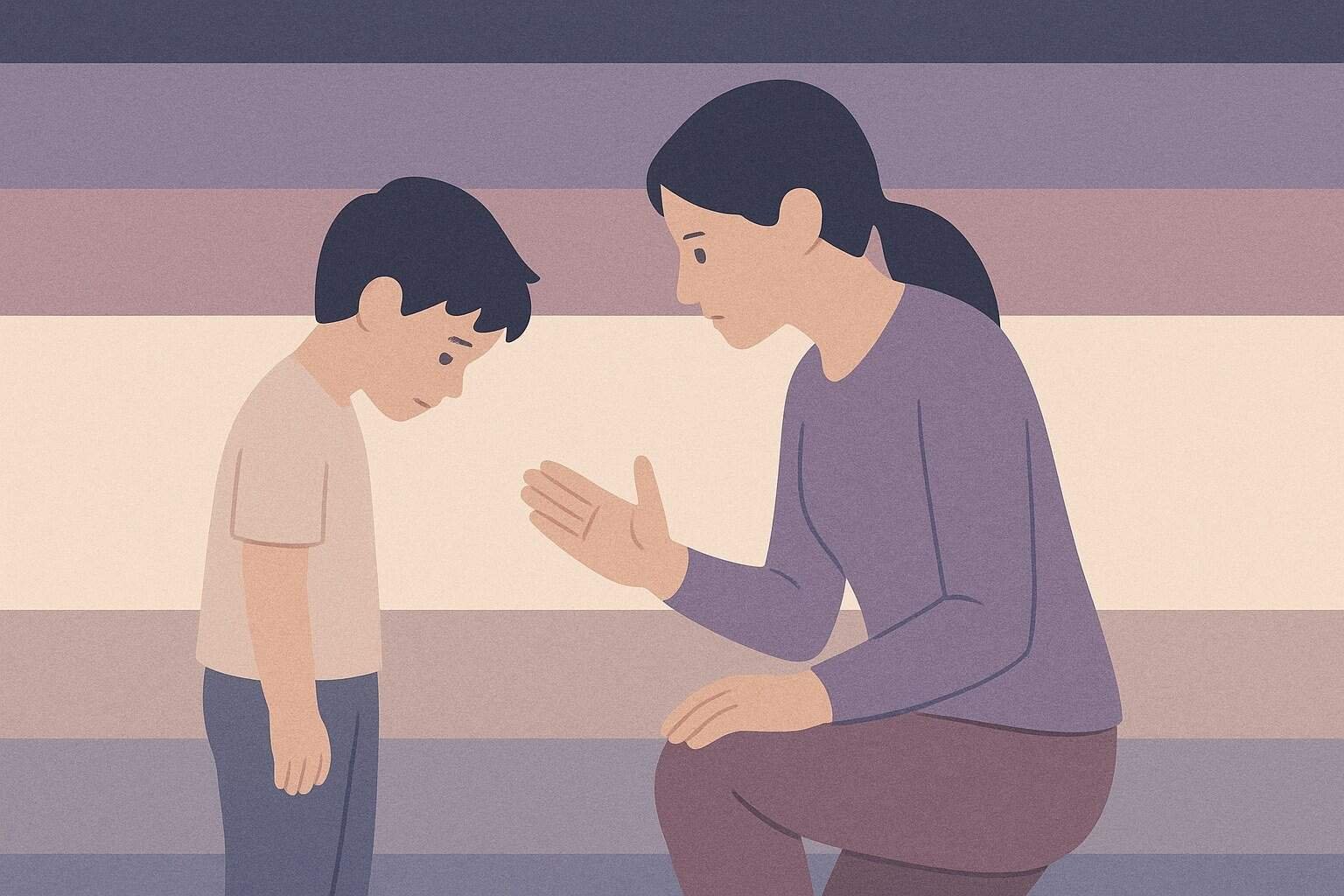On the Importance of Boundaries and Discipline in Raising Resilient, Trusting Children
While reading this article about a father fed up with his wife’s interpretation of “gentle parenting,” a deeper question emerged: When did parenting become more about avoiding our children’s discomfort than preparing them for life? The father’s frustration is more than a disagreement—it reflects a widespread confusion in modern parenting about the role of boundaries, discipline, and what love looks like in action.
The mother in the story doesn’t want her child to face consequences. She wants to preserve harmony, prevent breakdowns, and keep her son from experiencing the emotional fallout of being held accountable. But this interpretation of gentle parenting, though well-intentioned, is profoundly mistaken. It confuses compassion with avoidance, and empathy with enabling. What begins as an effort to support emotional well-being undermines emotional growth.
The False Safety of No Conflict
Children need boundaries, not as punishment, but as orientation. Boundaries are how we say, “You matter. And so does everyone else.” They are the lines that give shape to reality. Without them, the child floats—unmoored, unformed, and uncertain where the edges of self and other begin and end.
Ironically, when parents try to avoid all conflict or distress, they create a world too soft to support the child’s real development. Love, in this case, melts the container rather than strengthens it.
The Comparative Mind Needs Contrast, Not Coddling
A child’s mind develops not in a vacuum of validation but through contrast, consequence, and lived experience. The comparative mind—the part that weighs, tests, reflects, and refines—relies on friction to grow. It learns through trial and error, doing something and discovering it doesn’t work, trying again, and sensing the shift. When parents preempt every error to shield the child from failure or frustration, they deny this critical developmental function. The child doesn’t feel the weight of choice or the shape of cause and effect. Without feedback, there is no formation.
Think of it like learning to walk: it’s not the walking that teaches, it’s the falling and getting up again. Boundaries are not there to make life rigid—they’re there to create the necessary contrasts for the comparative mind to calibrate reality. A child who never hears “no” cannot meaningfully understand “yes.” A child who is never challenged may grow accustomed to comfort, but never confident in their capacity. And a child never allowed to try—and err—never discovers their inner compass.
Discipline Is Not a Dirty Word
Discipline—real discipline—is not about control or compliance. It’s about guidance, modeling, and consequences. It’s how a child learns, not just what is expected, but why it matters. Without it, behavior becomes detached from meaning. Accountability becomes optional. And the child’s inner compass? It never gets calibrated.
In the YourTango story, the father tries to create just such a calibration. He offers boundaries and provides a consequence. But the mother overrides it out of fear that her child will be upset. What’s being avoided here is the child’s reaction and the mother’s discomfort with being the container.
Parenting Through Our Type
This story is also a living map of how Enneagram types can distort parenting under stress. The mother’s behavior mirrors traits of Enneagram Type Nine (the Peacemaker): conflict-avoidant, harmony-seeking, and inclined to dissolve tension at the expense of clarity. Meanwhile, the father may reflect Type One (the Reformer) traits: principled, focused on fairness, and often concerned that laxity now means regret later.
Neither parent is wrong—they’re both trying to love their child. But without mutual alignment, the child learns that love is confusing: one parent holds, the other releases; one corrects, the other cushions. The result? The child becomes the center of a tug-of-war—both overprotected and underguided.
“No” Is a Sacred Word
Boundaries are not about rejection—they are a form of love. Saying “no” with clarity and presence is one of the most profound gifts we can give our children. It teaches them to honor limits, take responsibility, and feel secure knowing someone else is holding the container when they cannot.
Permissiveness disguised as empathy does not create confident children. It shapes children to fear consequences because they’ve never learned to face them. True gentleness does not avoid storms—it walks into them with compassion and firmness.
What Are We Really Teaching?
Children don’t just need love. They need loving boundaries. They need to be told the truth, to experience real consequences, and to know that their parents are strong enough to hold the storm when it comes.
Not all discipline is punishment. Not all rules are oppressive. And not all conflict is harmful.
Sometimes the most loving thing we can say is: “No. And I’ll stay with you while you understand that.”
John Harper is a Diamond Approach teacher, Enneagram guide, and human development student whose work bridges psychology, spirituality, and deep experiential inquiry. He is the author of The Enneagram World of the Child: Nurturing Resilience and Self-Compassion in Early Life and Good Vibrations: Primordial Sounds of Existence, available on Amazon.
